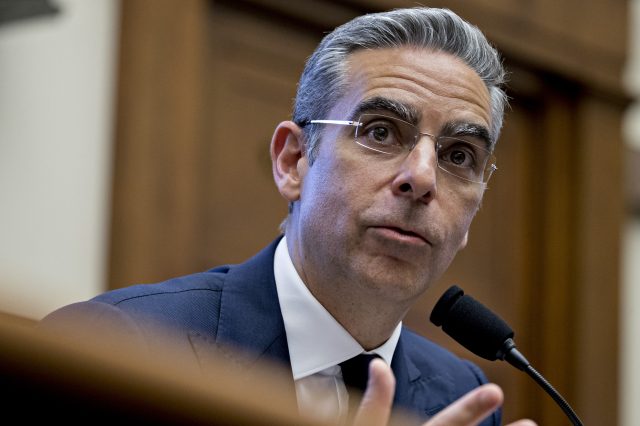Facebook Denies Reports It Is Backing Away From Libra Cryptocurrency

Facebook is poised to shelve its own Libra cryptocurrency proposal, two media reports indicated on Tuesday. But Facebook said it remained committed to the project—and one of the two media outlets has partially walked back its initial report.
A new report from The Information, citing “three people familiar with the matter,” said that Facebook has decided not to support the new virtual currency in its own products. Instead, Facebook will offer users the ability to make payments using conventional currencies like the dollar and the euro. The rollout of Facebook’s expected digital wallet software will also be delayed by “several months,” The Information reported.
Update: In a subsequent tweet, The Information’s Alex Heath wrote that he spoke to Facebook and now believes that the company “will support the original Libra token concept in its wallet. But expect it to emphasize the new digital government currencies it plans to introduce.”
Bloomberg also talked to “three people familiar with the matter” but described the situation differently. According to Bloomberg, Facebook and its partners are “weighing a recast of Libra as mostly a payments network that could operate with multiple coins.”
In a Tuesday email to Ars Technica, a Facebook spokeswoman strongly denied reports that the social media giant was backing away from Libra.
“Reporting that Facebook does not intend to offer the Libra currency in its Calibra wallet is entirely incorrect,” she wrote. “Facebook remains fully committed to the project.”
A spokesperson for the Libra Association also told Ars Technica that nothing had changed.
“The Libra Association has not altered its goal of building a regulatory-compliant global payment network, and the basic design principles that support that goal have not been changed nor has the potential for this network to foster future innovation,” the spokesperson said in an email statement.
Libra has been under fire since its announcement
When Facebook introduced Libra last June, it sparked an immediate backlash from government officials in the United States and around the world.
“I don’t think that the project can go forward… without there being broad satisfaction with the way the company has addressed money laundering, all of those things,” said Federal Reserve Chairman Jerome Powell in early July.
Later that month, Facebook seemed to be backing away from its initial early vision for Libra to be a fully open, decentralized network. During congressional testimony last July, David Marcus, the public face of Facebook’s Libra project, assured regulators that Libra would be designed with controls for money laundering, terrorist financing, and other possible abuses.
But those kinds of controls run directly counter to the decentralist philosophy of traditional blockchain-based networks. To stop misuse of the network, Facebook would need to vet everyone building an app or offering a payment service on the network. But adding this kind of red tape wasn’t going to help Facebook’s goal of making the network accessible to users in the developing world.
These promises also seemed likely to put Facebook on the hook for enforcing a wider range of regulations that countries around the world impose on domestic financial networks. Conventional blockchain networks like bitcoin skirt these rules because there’s no one for authorities to punish if the bitcoin network fails to comply. But that approach wasn’t going to work for Facebook—which meant that Facebook could find itself in a regulatory quagmire, trying to simultaneously satisfy hundreds of different regulatory agencies around the world.
Then in October, several of Facebook’s most important Libra partners backed out of the project. Stripe, Visa, Mastercard, and Mercado Pago all quit in a single day. PayPal had quit a few days earlier. Facebook soldiered on with its remaining 20 partners. But it was hard to ignore that the companies jumping ship were some of the companies with the most experience actually running payment networks.
Facebook says it’s continuing to push forward with the project, but it won’t be easy.
READ MORE HERE

